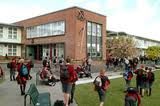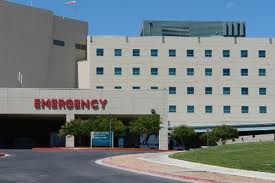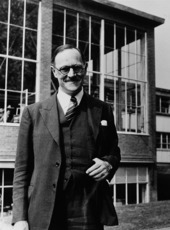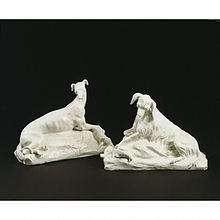Page removed for revision.
UNDER CONSTRUCTION
Page 2
The Law relating to building
Global Warming
Back soon, while waiting, play this Homer's Morrissey
Letters Index

A recommendation regarding the euro crisis and the Bank of England
Malcolm Baker PhD.
Having decided to see if I could come up with some ideas to earn a Nobel Prize for Economics, I decided to try to understand and master the subject. It only took the reading of one excellent book to understand the basics.
It is The Economics of Inheritance, by Josiah Wedgwood.
He had analized the inheritance figures in depth, and concluded two things.
1. 60% of the population will always be poor, and 40% will be rich.
2. That 90% of the world's wealth is owned by 10% of the population, and the rest of us, the other 90% have to get by on 10%. The wealth was, surprisingly, evenly owned by men and women, with perhaps a slowly increasing proportion being owned by corporations.
So what does that tell us? To improve the economy of a country, we have to try to transfer some of the wealth to the less well off? This means by producing those things they do not already have, and making them want to buy what we can produce.
But not necessarily so. Just because one household, to use an example, is considered poor by the standards of the rich, if they live in a freehold property, have an income sufficient their need, and have something left over to save, they may rich in their own minds. If all their neighbours are in the same situation, even though all are relatively poor, it does not matter. It only matters when teh income is insufficient to meet their expenses.
Nobody I know would argue that the world's economy is not stagnant, or in recession. This could be because there is not enough money in circulation, so people cannot buy what they want and need. To improve this it may be necessary to increase wages for the lowest paid, and also for the better paid, up to those who earn four times the minimum wage in order to maintain relativity in wages. How can this be done without increasing inflation, or as the current argument goes, increasing the number of unemployed.
One way would be for the government to mandate that there should be no unemployed. This would mean up to 10% (the current unemployment rate) increase in government spending. The government could simply say, "you must increase your work force by 10%, and we will pay them the minimum rate". Would it work?
A worker in Fiji earns $2 per hour. If eh wages increased to $4 per hour they would still be poor by world standards. A nurse in New Zealand earns about three times the minimum, or $42 per hour. If a nurse in Fiji earned $15 per hour it wold still be a little, but the skills of a nurse are the same the world over. It would make sense to train more nurses in Fiji. Even if a nurse went from New Zealand to Fiji to train, and earned $15 per hour, that wage would be high if teh money was spent in Fiji, and not repatriated back to New Zealand. If a nourse worked for six months in Fiji on Fijian wages, and six months in New Zealand on the New Zealand award, there could be both savings and benefits. A qualified nurse would then be free to take her skills to where ever they were needed.
Wedgwood said another thing. He talked about marginal utility, or the amont left over after all teh bills for teh weeek are paid. This is teh real wealth or disposable income, even if it is only $10 per week it is better than being $10 more in debe.
He also talked about fixed assets and moveable assets. Housing is an example of a fixed asset. You can't move it so if there is o demand where your property is, it is worth less. Art is a moveable asset, and is more valuable because it can move to the market, and the buyer can take it home.
In conclusion he talked about stimulating the economy. This means spending by the government. He said it made little difference where this spending took place, but that traditionally the banks received most of it. He thought it may be preferable to spend it on teh old people, because eventually the money will filter through the economy anyway. If somebody is being paid to do work that helps an old person stay in their home, and get their food and gardening and maintainance need taken care of, the people being paid to do the work will spend it, on things possibly that small businesses produce, and it moves through an economy several times.
This proposal is my own thesis in an attempt to win a nomination for a Nobel Prize for Economics.
The first task is to divide the world into nations, which it is obviously, and balance each of the individual budgets.
To do this the debt must be averaged over the whole population on the eve of every election, so the population know how much they are responsible for if it has to be repaid overnight. It can also be expressed as a % of national economic activity, private and public production, or exports after all import costs have been deducted a % of Gross Domestic Product (GDP). i.e the deficit (or surplus) is 7% of GDP.
90% of the population control the other 10%
Education
Education must be free, compulsory and secular. At present some state high schools charge as much as $12,000 p.a. Some money could be earned by having shops, selling things like stationery and books.
Health
The Ministry of Health is the biggest loser with the largest deficit. They have assets, such as land and buildings, which they could sell, and lease back if that made economic sense. They could also earn money from Education by training people for a share of the Education budget, and could spend money buying assets, such as Electricity generation.
State Housing
State Housing, if one is not philosophically opposed to the state owning and renting property is the easiest to manage. Alone it could easily make a profit. It could aslo own other property including some of the profit making state owned enterprises.

The Minister of Finance is a senior figure within the government of New Zealand. The position is often considered to be the most important Cabinet role after that of the Prime Minister.
The current Minister of Finance is Bill English. There are also two Associate Minister roles. They are currently held by Simon Power and Steven Joyce.
To illustrate how a budget can be balanced, I have divided the economy into four ministries; Education, Health, Housing, and Finance. Each gets 25% of tax revinue, and has to produced a balanced budget, if not by earning a profit, by borrowing from Finance. The interest rate will depend upon world markets, but would probably be between 4% and 8%. The other Ministries are divided between them by negotiation.
Gross domestic product (GDP) refers to the market value of all final goods and services produced within a country in a given period. GDP per capita is often considered an indicator of a country's standard of living.[1][2]
Gross domestic product is related to national accounts, a subject in macroeconomics.
Gross National Product (GNP) is the market value of all products and services produced in one year by labor and property supplied by the residents of a country. Unlike Gross Domestic Product (GDP), which defines production based on the geographical location of production, GNP allocates production based on ownership.
GNP does not distinguish between qualitative improvements in the state of the technical arts (e.g., increasing computer processing speeds), and quantitative increases in goods (e.g., number of computers produced), and considers both to be forms of "economic growth".[1]
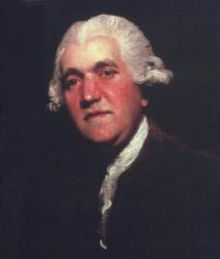
Waterford produces many patterns of lead crystal stemware, including lines such as Adare, Alana, Colleen, Kincora, Lismore, Maeve, Tramore, and many others.

